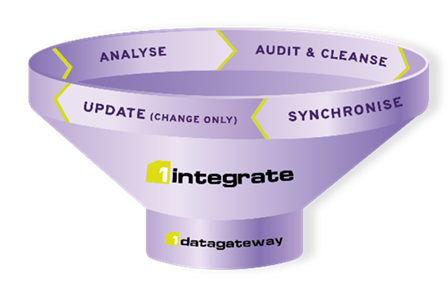Minesh Naran, Head of Transport, Reflects back on 2021

Minesh Naran, Head of Transport, Reflects back on 2021
As this year draws to an end, I want to take this opportunity to look back and reflect on the key moments and challenges that have impacted my role as the Commercial Head of Transport at 1Spatial.
challenges that have impacted my role as the Commercial Head of Transport at 1Spatial.
I've been with 1Spatial for 8 months and it has been a truly eye-opening experience, learning about a comprehensive range of exciting projects and opportunities, where we are helping our clients unlock value from their geospatial data.
It has been a privilege to be warmly welcomed by existing and prospective customers who openly share their problem statements, challenges and goals with us. I’m equally thrilled to work with highly knowledgeable colleagues to digest and assimilate customer requirements and then draft proposals that we can present back to clients, clearly outlining the services, software and fundamentally the ROI.
At the heart of projects lies the data. This data is key to shaping, informing and influencing the modus operandi for all sizes of organisations across each of our three commercial verticals of Government, Utilities and Transport.
Like many of you, by the end of summer, I was struggling with online webinar fatigue, and glad that over that last few weeks, I’ve noticed a marked transition to the option of having in-person events.
The first transport focused event that 1Spatial exhibited at this year was Highways UK. Being on the stand reaffirmed the importance of what we do as a business. There was a constant stream of visitors sharing their goals and aspirations like, better data sharing and building ‘Common Data Environments’ and ‘Digital Twins’, which is without doubt the way to unlock more value and supports the FAIR principle to make data Findable, Accessible, Interoperable, and Reusable.
 Bringing CAD and GIS data together to build Digital Twins
Bringing CAD and GIS data together to build Digital Twins
At Highways UK, it was clear that greater data sharing to enable more complex analysis and more refined visualisation of the data is a focus for many of you. However many weren’t clear on the importance of ensuring the quality of data and in turn the confidence in key business decisions. A report in Construction Dive 20211 recently showed that a contractor that generates $1 billion in revenue, the losses resulting from bad data could be as high as $165 million.
At 1Spatial, we understand the value of data quality for our customers. Recently the Geospatial Commission recognised and shared articles on the importance of Quality, adapting the FAIR principle to Q-FAIR.
As a business, this is music to our ears, and cements our very core IP of being able to deliver that data quality through our software and services.

Our 1Integrate tool attains quality through a seemingly simple but powerful set of case, customer, domain, or project specific rules. These can be based on data models, data standards or business goals, to align the whole data supply chain. It is the fundamental reason why we support and advocate for standards across our customer verticals. 1Integrate allows us to deliver increased automation on data checks through Data Validation, Data Correction and Data Enhancement enabling integration and transformation on projects of all scales.
At our annual conference, Smarter Data, Smarter World, a few weeks ago, it was great to see contacts that I had not seen in a long while. Across two days we heard from key influencers and leaders pushing forward the importance of geospatial capabilities in all arenas, including from Google, Defra, the Open Data Institute and the Geospatial Commission. Again, all roads pointed towards the importance of data and how essential it is to drive Sustainability, Collaboration and Innovation.
Looking forward to next year, we are going to experience more of the ‘new normal’, and as we do, we’ll adapt and progress.
I feel that sustainability will be key in shaping decisions and all organisations will increase the weight this has on how they deliver projects.
Transport will continue to be a key focus on how we can support the reduction of carbon emissions. The sector will be moulded by the Department for Transport’s Decarbonisation plan, setting out a strategy by which we need to reduce greenhouse gases and reach net zero by 2050.
For me, I see this as a real opportunity, and I'm encouraged by the recognition in the Geospatial Commission’s Strategy where transportation is one of nine areas identified. This will contribute to economic recovery while keeping sustainability at the forefront of all considerations.
In summary, it has been an exciting road with a few pot-holes thrown in for good measure.
I look forward to seeing and hearing from you all next year. I wish you a wonderful, restful and safe festive season.
Minesh Naran, Head of Transport, 1Spatial

